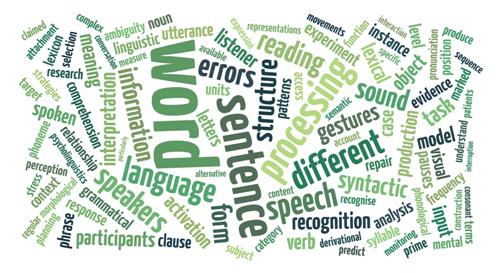[LINGUISTICS] Psycholinguistics Study? Why Not?
According to Field (2003), Psycholinguistics explores the relationship between the human mind and language. Psycholinguistic itself has six major areas which sometimes overlap to one another; Language processing, Language storage and access, Comprehension theory, Language and the brain, Language in exceptional circumstances, and First language acquisition (pp.2-3). However there is a thick line to differentiate between language and psychology, the experts in language (linguists) has the tendencies to describe or analyze the competence of the knowledge of language in the human mind meanwhile, the experts in psychology (psychologists) have the interest more in the performance of the language use. Besides looking at the concept of the experts, psycholinguistics also look upon the different modalities in both spoken and written form of a language. Speech is more spontaneous, connected and takes place in real-time meanwhile; writing is deliberate, uses discrete units and can be reviewed after the production. The last concept to distinct in psycholinguistics is the process of the human minds, is it either productive or receptive and it is on the lower or higher level (Field 2003. pp.92-3).
Based on my experience, if a research is conducted in the field of psycholinguistics, I would rather say that it is quite possible to also discuss the second language or foreign language acquisition. Why? Because the process also can be analyzed in certain aspect of linguists and psychologists. For example, if a student of an EFL learn a word, I firmly believe that the way he/she acquire the word (or learn) must be in the stage of getting the word, using the word in gradually extensive correct and finally retention of the word in production of daily life. These stages are for me personally are the process in which I also believe are all plausible to be included in the psycholinguistics study.
References
Field, J. (2003). Psycholinguistics. Routledge, USA.


Comments :